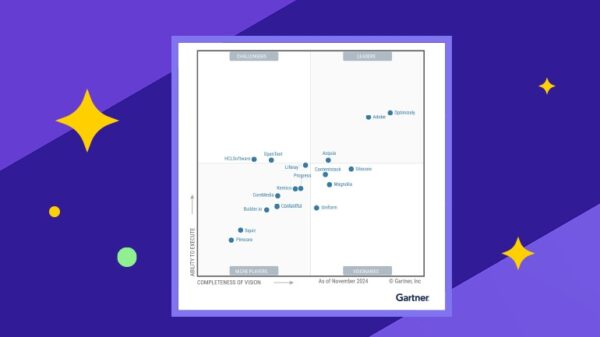
Businesses need DXP software to create personalized customer experiences across multiple channels. These platforms have become essential tools for organizations looking to succeed in our connected digital environment. As we move through 2025, several digital experience platforms stand out for their innovative features, integration capabilities, and ability to transform how businesses engage with customers.
The Evolution of Digital Experience Platforms
Digital Experience Platforms go beyond traditional content management systems. Modern DXP software combines content management, customer data analysis, personalization tools, and digital document management into single solutions that work across websites, mobile apps, devices, and customer portals. Unlike basic website management systems, DXPs provide complete toolsets designed to create smooth digital journeys that meet customer expectations. Industry experts like Gartner recognize these platforms as crucial to digital transformation, helping businesses deliver relevant experiences that build customer loyalty in competitive markets.
- Adobe Digital Experience Platform
Adobe Digital Experience Platform remains a leader in the enterprise market with its comprehensive suite of integrated applications. Powered by Adobe Sensei AI, this platform excels at collecting and using customer data for large-scale personalization. Adobe’s strength comes from its ecosystem of creative and marketing tools that work seamlessly together. While its digital document management capabilities are industry-leading, some users find the Digital Assets Management component difficult to navigate. The platform’s open architecture and extensive API options create a flexible environment for building custom applications.
- Acquia Digital Experience Platform
Acquia Digital Experience Platform stands out with its Drupal Cloud foundation, offering powerful content management with enterprise-level security. The platform allows administrators to create web pages using simple drag-and-drop interfaces while maintaining brand consistency. Acquia’s Marketing Cloud provides valuable insights into customer segments and journeys, helping marketers design effective campaigns. The platform’s role-based access and development environment make it particularly good for businesses with complex organizational structures. However, some users report limitations in monitoring and notification features.
- ContentStack
ContentStack delivers an API-first headless CMS that excels at enabling content delivery across web, mobile, and emerging channels like AR/VR and IoT devices. The platform’s architecture ensures efficient content distribution. With strong version control, approval workflows, and asset management features, ContentStack offers sophisticated digital document management capabilities. Security features include single sign-on, two-factor authentication, and strong encryption. While the platform provides excellent flexibility for developers, some users note a lack of pre-built templates and components.
- Vue Storefront
Vue Storefront offers a specialized DXP focused on creating exceptional eCommerce experiences through progressive web applications. This solution connects with existing systems via APIs, enabling businesses to build shopping experiences that feel like native apps with improved performance. Vue Storefront’s approach dramatically reduces load times and enables features like push notifications and offline mode. The platform integrates with popular payment systems and voice commerce solutions, making it ideal for forward-thinking retail organizations. However, some users report missing advanced catalog features and potential challenges during transition.
As we move through 2025, digital experience platforms continue to evolve, incorporating advanced technologies and responding to changing customer expectations. The most successful organizations will use these powerful DXP software solutions to create memorable digital journeys that build lasting customer relationships while streamlining internal operations.